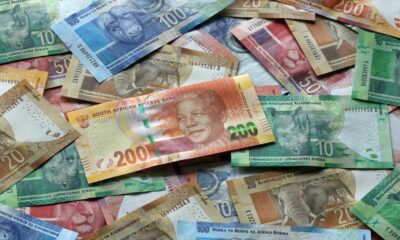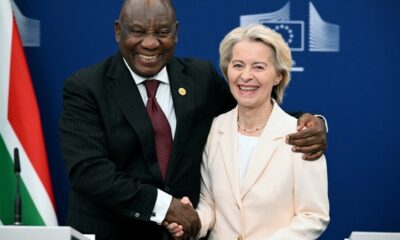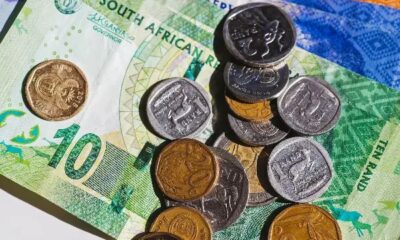Business
South Africa’s Business Confidence Stalls as Trade Tariffs and Costs Bite

A sobering third quarter
South Africa’s fragile economy has taken another knock. The RMB/BER Business Confidence Index slipped in the third quarter of 2025, settling at 39 points. It may only be a one-point drop, but the fall follows a bigger decline earlier this year and leaves confidence sitting below the long-term average. The number tells a clear story: more than 60 percent of businesses remain dissatisfied with current conditions.
Global pressures meet local realities
Economists point out that South Africa is not alone. Many economies are battling after a turbulent year of political and financial shifts across the globe. For local companies, this coincided with a particularly heavy blow: the 30 percent tariffs imposed by the United States on South African exports in August. The move, reintroduced by President Donald Trump after months of uncertainty, was felt most in manufacturing and automotive sectors, where cancelled orders and production holidays added to the gloom.
While the impact of the tariffs is difficult to measure in isolation, business sentiment clearly suffered. South African firms are learning to navigate what experts describe as a new and difficult global order.
A tale of mixed fortunes
The broad index may look flat, yet sector breakdowns reveal wild swings. Building contractors and new vehicle dealers saw confidence rebound, with the latter even pushing into positive territory above 50 points. Interest rate cuts by the South African Reserve Bank in July offered some relief for rate-sensitive sectors.
Retail, wholesale, and manufacturing, however, recorded steep drops. Wholesalers, once leading the pack, slipped to 38 points after five straight quarters of strength. Consumer demand simply has not held up, with imports and rising electricity costs squeezing margins.
Politics and policy shifts
If there was a silver lining, it came from relative political calm. The heated battles around the 2025 Budget earlier in the year had raised fears of a collapse in the Government of National Unity, but the dust has since settled. The budget passed, and while tensions linger, no new drama has rattled the markets.
The Reserve Bank also announced plans to pursue a 3 percent inflation target in the future, down from the current 4.5 percent midpoint. This could open the door to further rate cuts, provided inflation remains contained. For households and small businesses alike, cheaper borrowing could bring a much-needed lifeline.
Confidence still too weak
Despite these positives, the overall picture remains worrying. The current level of business confidence is still too low to encourage the scale of investment needed to boost growth and employment. Alongside global challenges, many companies continue to flag homegrown obstacles: corruption, municipal service failures, red tape, and unreliable infrastructure.
With local government elections on the horizon in 2026, there is growing pressure for municipalities to improve basic service delivery. Until then, business leaders seem resigned to muddling through rather than betting on bold expansion.
Also read: Eskom tariff settlement: Mining firms demand tariff reopener after R54bn deal
Follow Joburg ETC on Facebook, Twitter, TikT
For more News in Johannesburg, visit joburgetc.com
Source: Business Tech
Featured Image: 123rf



























